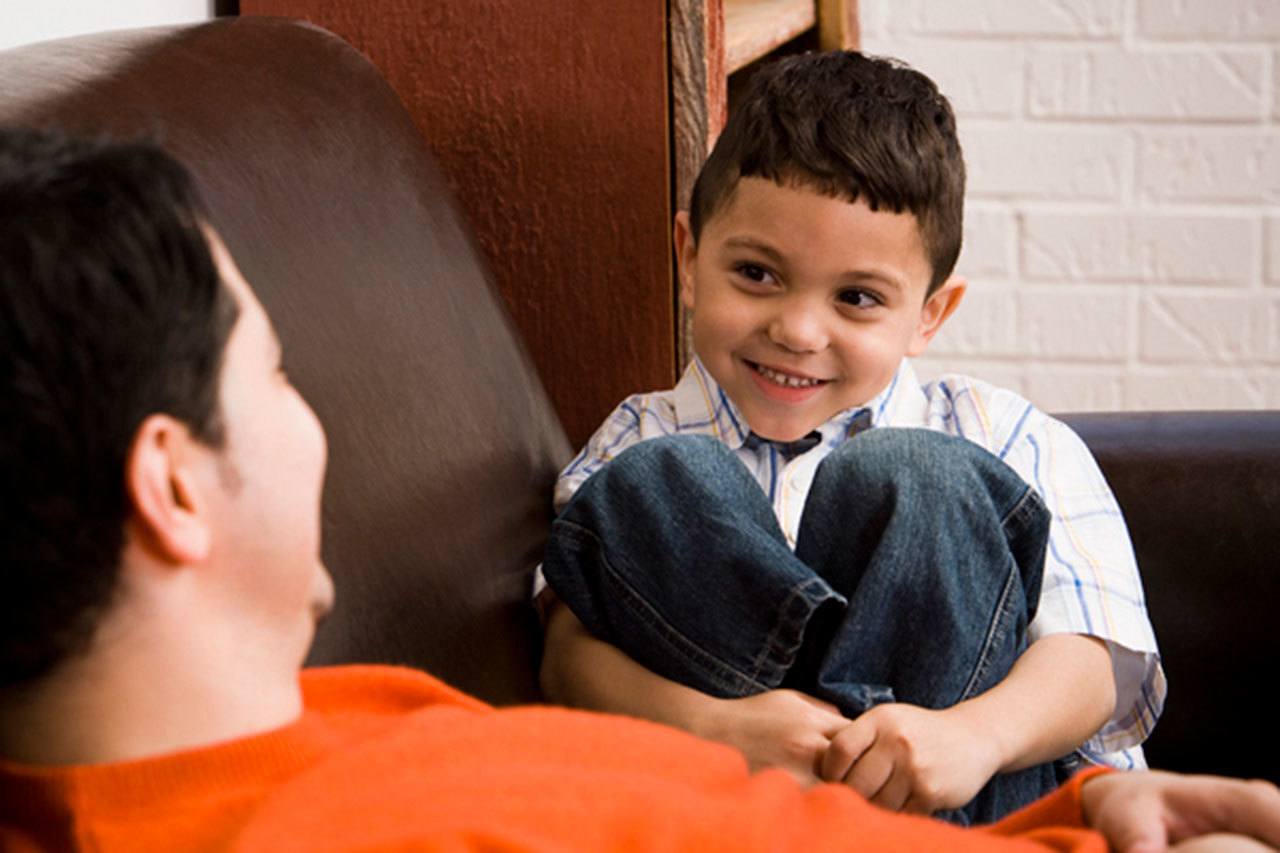Most people teach their child about talking without giving it a thought. Just talk. They are right; this will work. But as we have written in the past couple of weeks, there are some things you can do that really will make a difference in how fast your child learns words and how to express himself.
How you communicate with your very young child is important in this learning process. Your role continues as your child grows older. But the communication you have with your child will greatly impact your role in his future.
If your child talks with you about what he is doing when he is 7 years old, he is more likely to talk to you when he is 12, 15 and even 18. When you share ideas about projects, people and even books you both may read, he learns to value your input. If at any point you stop this process, he learns to take his thoughts and words elsewhere.
So what is the key to keeping the communication channel open between you and your child? Everyone has their way of doing things. Two psychologists have strong ideas about talking with your children that are worth considering.
Doris Durrell in her excellent book, “Starting Out Right: Your Child’s First Seven Years,” writes about the characteristics of adult speech that help in language development. She emphasizes the following which improves the level of communication in the early school years.
1. Slow down your speech.
2. Articulate your words very clearly, emphasizing the beginning and ending sounds.
3. Speak in simple, well-formed sentences.
4. Coordinate your statements with what you are doing or with what captures the interest of your child at the moment.
5. Repeat your sentences three to four times.
These simple hints help your child learn about language and speech faster and with greater ease. They easily can be forgotten so take some time when you talk to your child. If your child can’t understand what you are saying, it is the same as cutting off communication with him.
Then in his book, “Beyond Discipline: Parenting That Lasts a Lifetime,” Dr. Edward Christophersen discusses three rules of communication with your children:
1. The first rule of communication is to listen. This may be one of the most important rules of communication. It also is one of the rules that is most frequently forgotten. If you get into the habit of listening to your children, then you won’t have to talk to them … they will still tell you what’s on their minds without you having to ask.
2. The second rule is to listen with understanding. When a child talks, he may not say things the same way an adult would and if taken literally, we may misinterpret what he is saying. For this reason, it’s a good idea to restate in your own words what your child is saying to make sure that you understand the point that he or she was trying to make. This back and forth really shows your child you want to understand what he is saying. It means you care.
3. The third rule is that while listening, avoid judging your child. Your child won’t tell you about something which is really important to him if he feels you will become angry with him. A child who asks you to explain a dirty word he has heard needs to feel you will talk with him about it and not lecture him. If your response to his sharing with you is judgmental, he will stop asking you or he may have to take his questions to someone outside of the home to get his answers.
So speak clearly, listen carefully, let him know of your interest and don’t terminate discussions by being judgmental. All of these are simple ways to keep communication open and it isn’t even a lot to remember.
Cynthia Martin is the founder of the First Teacher program and director of Parenting Matters Foundation, which publishes newsletters for parents, caregivers and grandparents. Reach Martin at pmf@olypen.com or at 681-2250.



